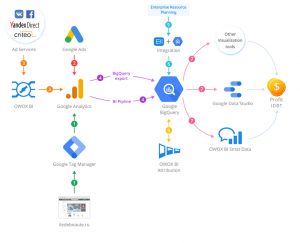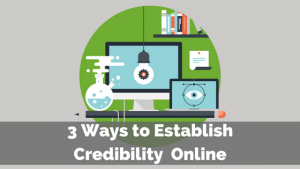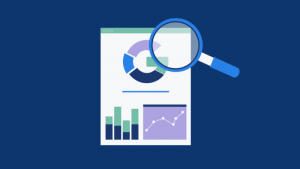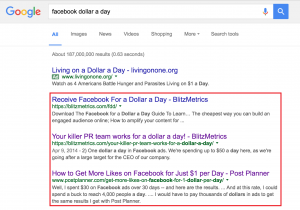The markets are amidst being big chaos and the forecasts for the economy have been predicting a unique global recession. No, we have not gone back to the year of 2008, but the Great Recession and the memories of it are still fresh which might just make it more the fear of approaching a financial crisis even more intense. The daily panic is very real and intensified by the global pandemic caused by COVID-19. In such uncertain, unstable times, how will one make it through strong?
The times we are living in are like no others. Nobody could have thought a few months down the lane that countries across the world will go under lockdowns and everyone will be afraid to step out of their homes, even for buying essentials.
However, now is not the time for you to hide under all the fear. Such unstable times call for proactive approaches and immediate actions. Here is a COVID-19 Financial Survival Guide that might be your helping hand amidst all the instability and panic.
Manage Your Credit Card Debts Wisely
Do not pay off your credit card debts. Yes, you got that right – don’t pay off the debts on your credit cards, or while we are at it, any home loans, personal loans, student loans, or other forms of debt. Just make the minimum monthly payment. It definitely feels amazing to have a monthly balance that equates to zero, and it definitely seems like a safe resort, but it, however, is not. Strangely, the safe resort during these unstable times is to leave your debt where it is and save the cash that you have. Now, you might be thinking “why?” This is because cash is the ultimate power.
You need to consider a faceoff between having no debt and having no funds to pay for your rent and buy food vs. having debt but sufficient funds to survive. This is why it is important not to get over-enthusiastic and try to bring your debt to zero as of now. Under stable and normal circumstances, it is the best strategy to pay your debt down all the way. But again, we are not in normal times.
The fastest way one can go from good to bad is by facing a salary cut or going through a job loss – the minute one’s income stream stops, the problems start to rise. Now is the right time to have a decent cash cushion, especially with the companies downsizing or closing down.
If you have a loan that is interest-only in nature but you have also been making payments for the principal, just stop. Stick to simply making interest payments for the time being. When things get better and you face some stability, you can start to pay down the principal.
The bottom line remains, preserve your cash, make just minimum payments of your credit card debts.
Conserve Your Cash
It all comes down to conserve your funds. If you wish to reduce your expenditure and increase your savings for the month, consider opting for the PERK System i.e., Postpone, Eliminate, Reduce, and Keep. This system is pretty easy to work out and works well for people by helping in the reduction of the monthly expenditures. The PERK system contains 2 simple steps, they are:
Step 1: List out all of your expenses independently and then add them up together. This should include the recurring monthly expenditures such as rent, along with those expenditures that do not occur that frequently such as insurance of the homeowner.
Step 2: Now, the next step requires you to jot down either the initial P standing for Postponement, the initial E standing for Eliminate, the initial R standing for Reduce, or the initial K standing for Keep. These are further explained below:
- P for Postpone: These are the kind of expenses that you can manage to put off for a specific period of time. For instance, it could be a home remodeling project, a new vehicle purchase, or a family vacation.
- E for Eliminate: These stand for the expenses that can be completely avoided or eliminated by you. This could be the membership to the gym that you never use, or a subscription to a streaming service that you do not even watch, or some subscriptions that you do not even remember.
- R for Reduce: These are the expenses that you are willing to cut back on. For instance, if you are someone who orders in for dinner almost every night but is open to the idea of cooking a few days a week, you can mark this expense as Reduce. In such scenarios, you are willing to reduce the frequency of the expense.
- K for Keep: Many of the expenses that are fixed such as insurance, rent, groceries, and food should be marked under Keep.
It is time to recalculate and review your expenses. You should ideally land at a lower number than where you started.
Take up a Loan
With the market dropping by the day, and the layoffs increasing by the day – it is a good time to opt for a loan. Before reaching the deep end of this, read on to further understand what it means.
Just think about how you will be managing to pay off those electricity bills and insurance premiums if you end up having no job and also no cash cushion? The answer that will pop in your mind will be resorting to your emergency fund. Unfortunately, many people still do not have an emergency fund at hand or have one that is insufficient. When you are living a life with expenses depending on a paycheck to paycheck, it can be difficult to set aside almost half of your income as an emergency savings fund. This is why it is good to have a faux savings fund.
If you have a house and do not have a minimum of a year’s expenses in your emergency savings fund, you can go ahead and try to get yourself home equity line of credit or equity release loans. The equity line of credit in most cases should not cost you anything unless you draw funds. So, if you reach a point where you require funds to pay for your rent or to buy essential groceries, the cost can be worth it.
If you do not qualify for such credit or you do not have a home, you can look out for other options for credit.
The Bottom Line
We will, eventually, get through these unstable times. But, we do not know how and when that will happen. Some of the ideas in this thread are definitely unconventional and would not work in stable and normal times. However, the ultimate goal as of now for you should be your financial and physical security.
Business & Finance Articles on Business 2 Community
(54)
Report Post





